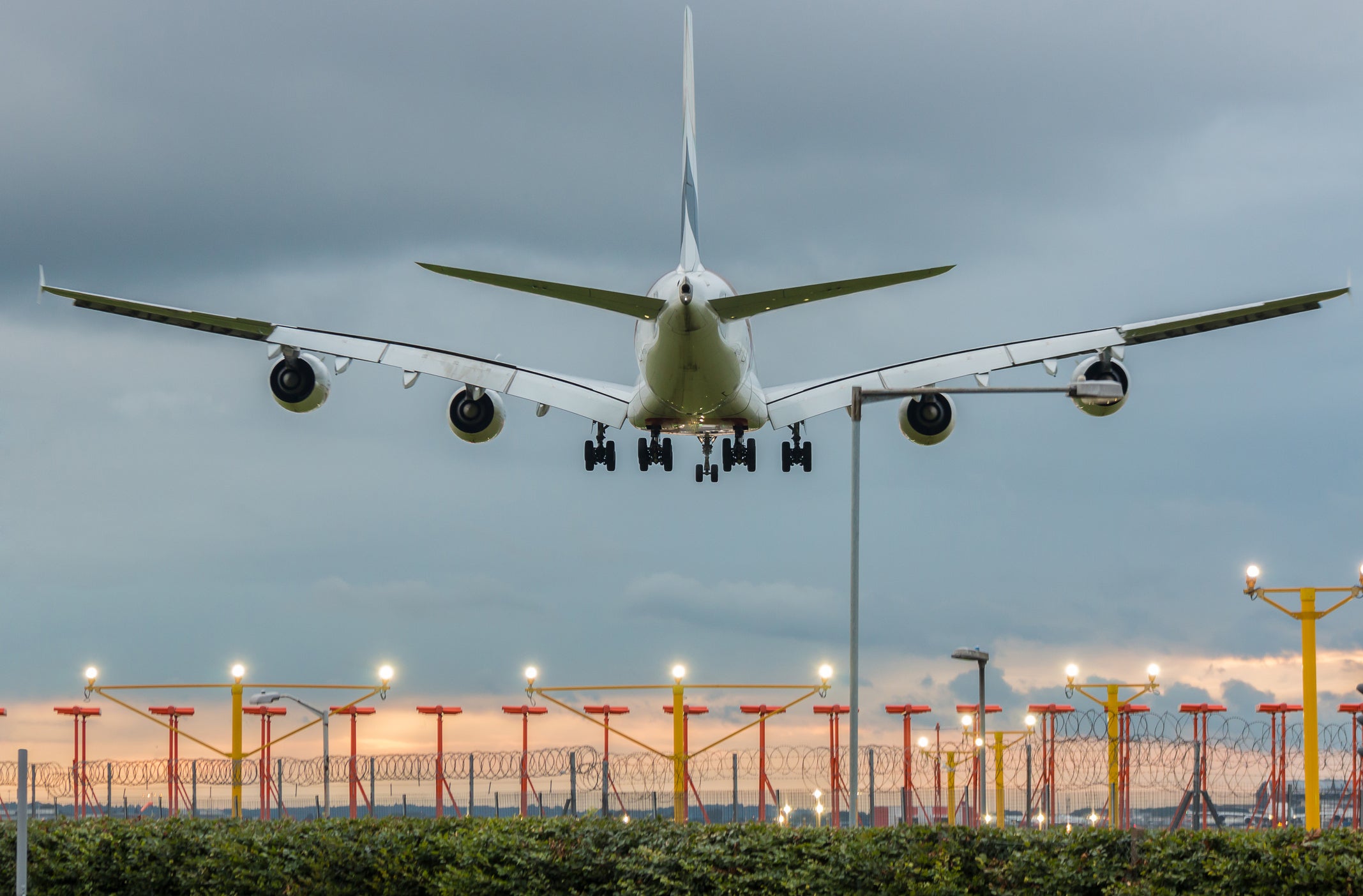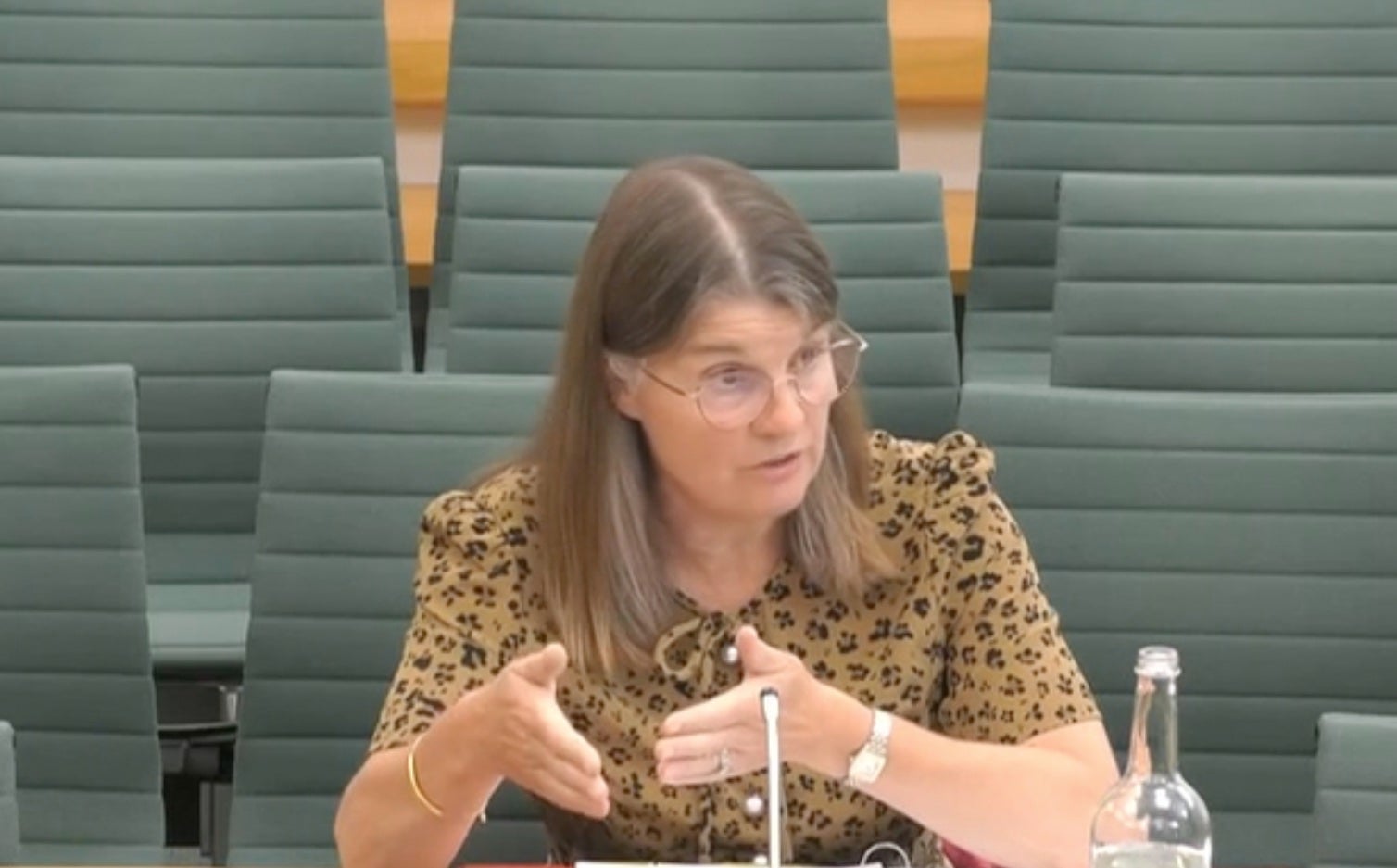UK government claims people must keep flying to help cut carbon emissions
Minister says government does not have demand management policy for aviation ahead of UN climate summit

Your support helps us to tell the story
From reproductive rights to climate change to Big Tech, The Independent is on the ground when the story is developing. Whether it's investigating the financials of Elon Musk's pro-Trump PAC or producing our latest documentary, 'The A Word', which shines a light on the American women fighting for reproductive rights, we know how important it is to parse out the facts from the messaging.
At such a critical moment in US history, we need reporters on the ground. Your donation allows us to keep sending journalists to speak to both sides of the story.
The Independent is trusted by Americans across the entire political spectrum. And unlike many other quality news outlets, we choose not to lock Americans out of our reporting and analysis with paywalls. We believe quality journalism should be available to everyone, paid for by those who can afford it.
Your support makes all the difference.A government minister has angered scientists and environmentalists by claiming people need to keep flying in order to help cut carbon emissions.
Speaking ahead of a key UN climate conference Rachel Maclean said the aviation sector needed to have "confidence in its future" and that the government had no plans to try and reduce demand for flights.
Outlining the government's position at a parliamentary committee she argued that theoretical cleaner airliners would never be invented if they were rendered unprofitable by people abandoning airports.
"These are commercial decisions that are led by the industry. I think the broader point that I've made is that actually we need the aviation sector to be successful, so that it can invest in those technologies that we know will drive towards technological solutions," she told the transport committee on Wednesday when asked whether airports should be expanded.
"Whether it's SAF [Sustainable aviation fuel], or whether it's electric or hydrogen aviation aircraft: these are technologically feasible solutions, they do exist, we've got these planes that fly already, supported by government investments, clearly they are at very early stages but if the sector lacks confidence in its future, it will not be backed by its shareholders, it will not place those big bets."
The minister, who is in charge of government policy on the future of transport and decarbonisation, said flying was one of the things that "make life worth living" and that the government would not place restrictions on it.
Polls suggest the minister's views are at odds with the general public; a YouGov poll from 2019 found that two thirds of people in the UK support restrictions on the number of flights people can take. Campaigners have called for a frequent flier levy on the basis that 70 per cent of flights in the UK are taken by a relatively wealthy minority of 15 per cent of the population, with 57 per cent generally not flying abroad at all.
But speaking just weeks before the UK government welcomes world leaders to the COP26 climate summit in Glasgow and will urge them to make commitments to cutting carbon emissions, the minister said: "We believe that we can reach zero in aviation [by 2050], without having a demand management policy.
"As we have made clear in all our aviation policy statements, we don't expect to stop people doing things like flying, because we believe it is important for people to be able to continue to fly for business reasons.

"Obviously that's an individual choice for those individual businesses, but also you cannot underestimate family ties that people have, and leisure, of course.
"These are important parts that make life worth living, and we shouldn't be stopping people doing those things, and that is not our policy approach. So we believe we can achieve that without directly limiting aviation, and our scenario modelling does back that up."
Ms Maclean added that the policy would be kept "under review" and provide people with "the information about what actually is a more sustainable choice if they choose to make it".
Dr Doug Parr, chief scientist for Greenpeace UK, said: “According to the minister, aviation needs to expand its huge carbon footprint in order to bring it down. More carbon is needed for us to reach zero carbon.
“It’s like advocating donuts as the confidence boost you need to make yourself go to the gym. All of the technological silver bullets which the government are relying on have severe limitations due to their cost, availability or weight, which means we can’t have any confidence that they can do more than decarbonise a very small part of our flying. This is why the Committee on Climate Change, and the Airports Commission, insisted that demand constraint was essential for aviation to meet our carbon targets.
“For the government to try to encourage investment in growing a sector they don’t know how to decarbonise is wildly irresponsible from any point of view. As the government prepares to host crucial international talks on the climate crisis, its message to other countries is that when decarbonising demands tough decisions, just cross your fingers, hope some technology will sort it out in 15 years’ time, and carry on regardless.”
Despite the minister's comments the Department for Transport's own model assumes that full electric planes will not be commercialised by 2050, when the UK needs to reach net zero by at the latest.
The Committee on Climate Change, a statutory body that advises the government on how to reach net zero, said in its latest report that "2050 penetrations of [electric and other alternative fuel aviation] options are likely to be limited, or they could occupy small niches by 2050 – although neither is likely to significantly improve the overall UK emissions profile". It says that "long-haul flights dominate UK aviation emissions and are likely to stay using a hydrocarbon fuel until 2050 or beyond".
The CCC recommends that "there should be no net expansion of UK airport capacity unless the sector is on track to sufficiently outperform its net emissions trajectory and can accommodate the additional demand" and that "demand management policy should be implemented" and “developed and in place by the mid-2020s”.
The government has been repeatedly pulled up by the Committee on Climate Change for setting ambitious decarbonisation targets without the policy muscle to actually achieve them. According to the CCC aviation emissions accounted for 7 per cent of UK greenhouse gas emissions in 2018 and were 88 per cent above 1990 levels.
Join our commenting forum
Join thought-provoking conversations, follow other Independent readers and see their replies
Comments